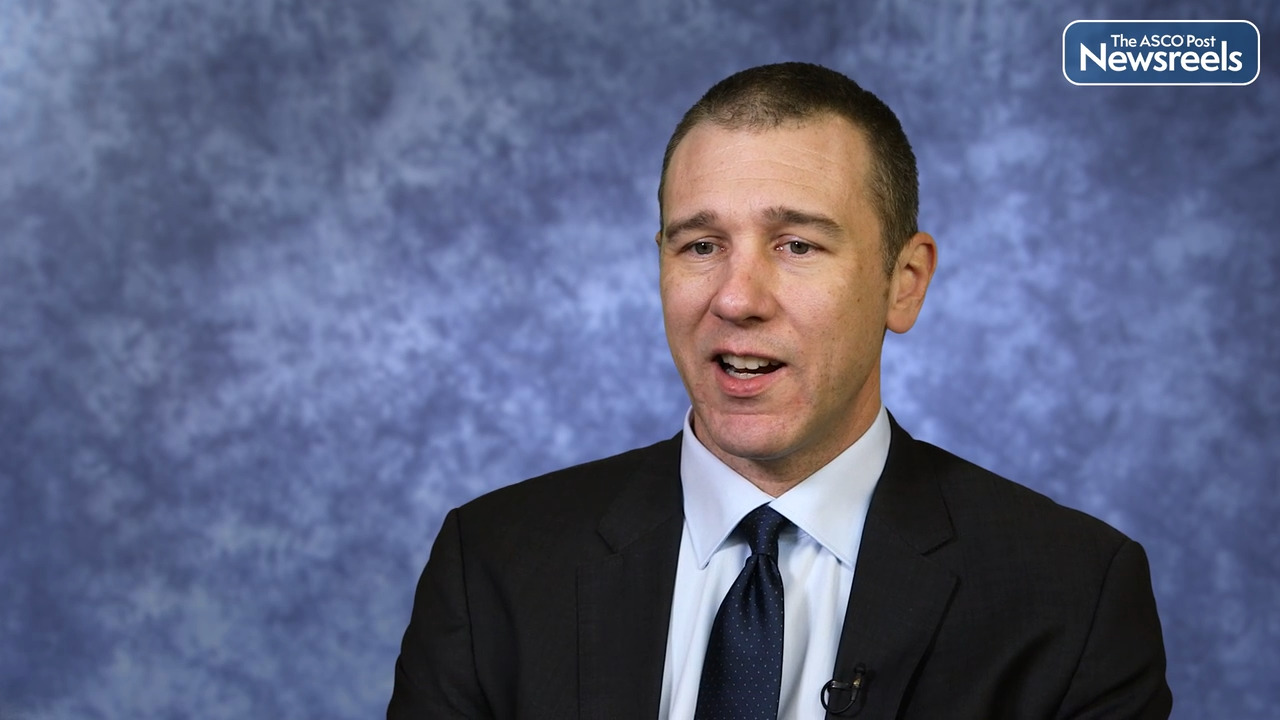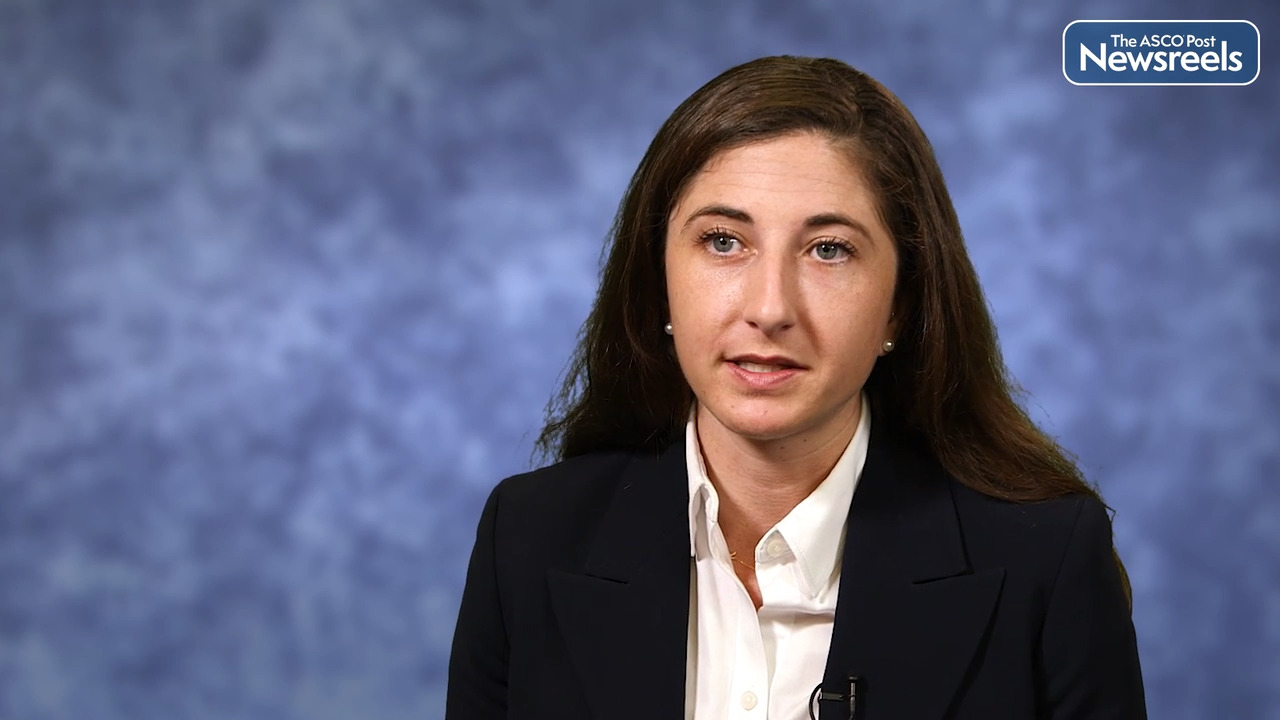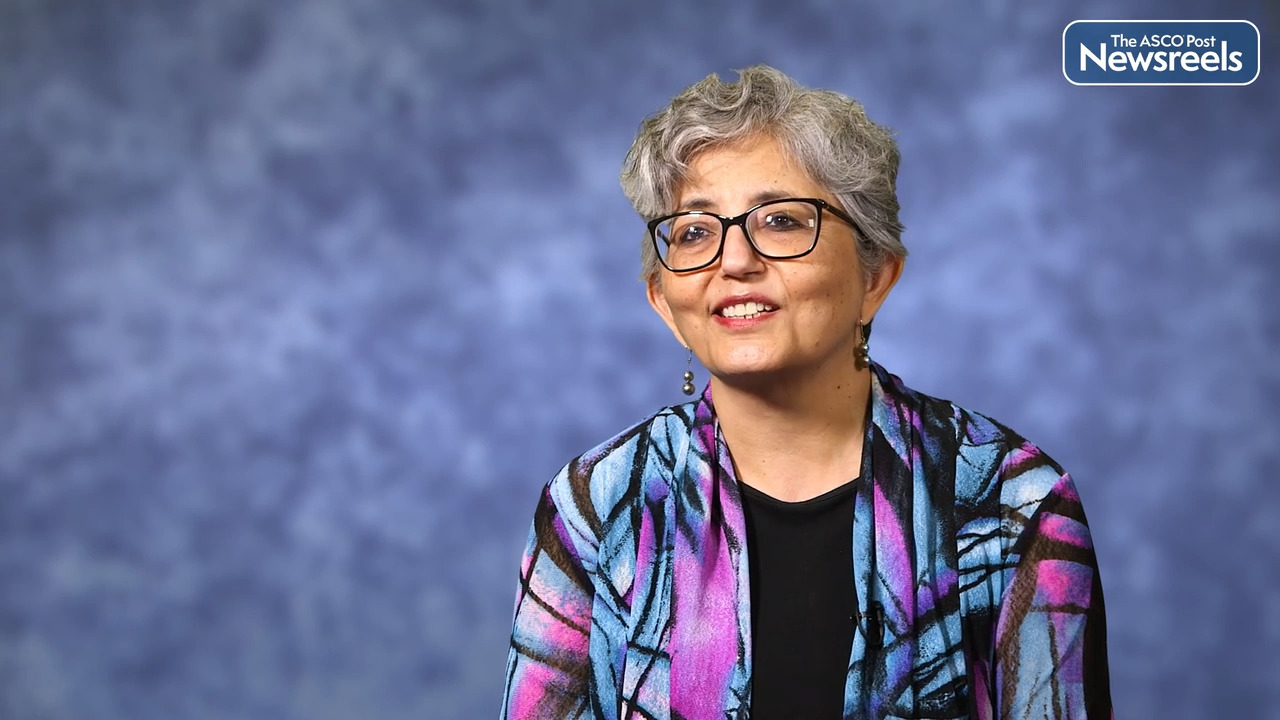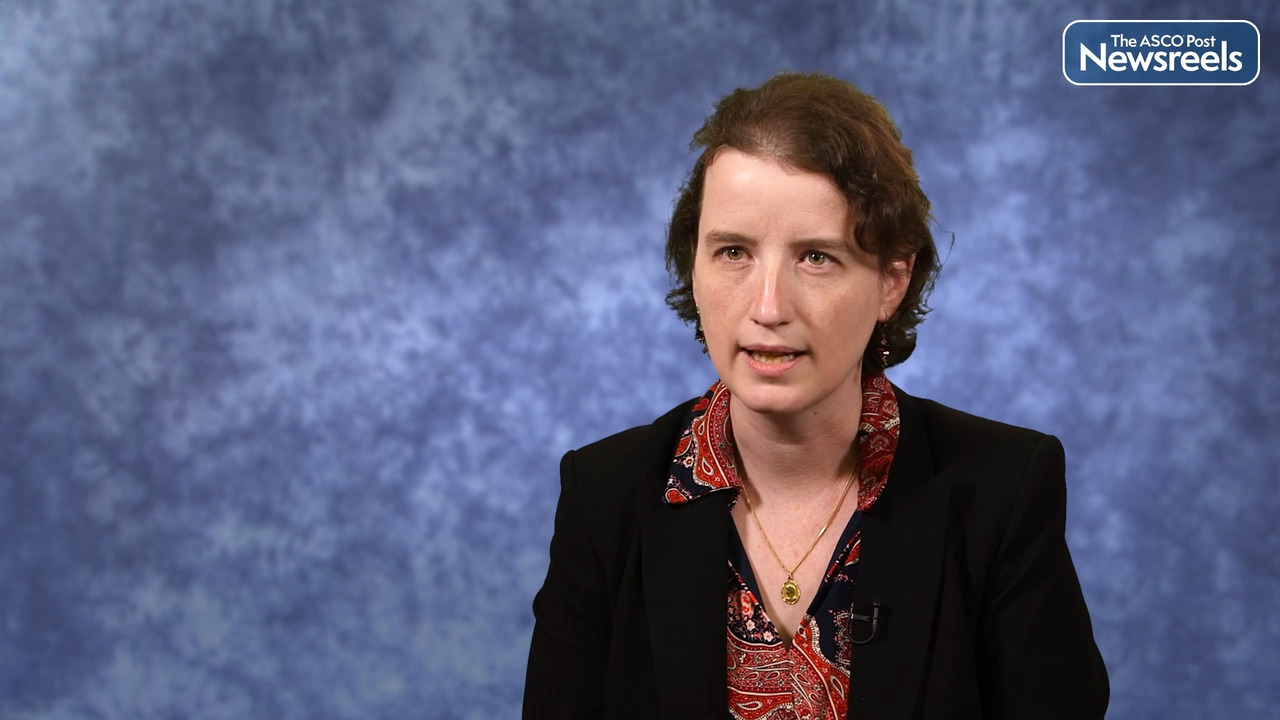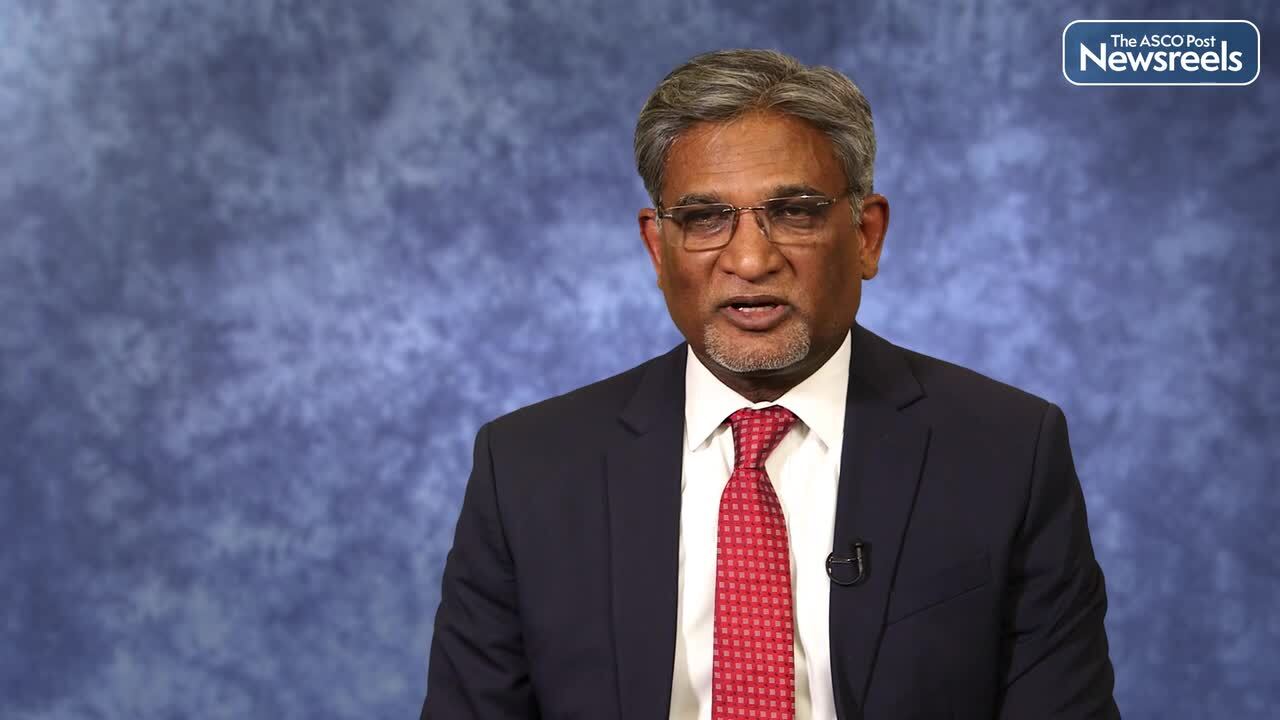Andrew Matthews, MD, on AML: Real-World Effectiveness of 7 + 3 Intensive Chemotherapy vs Venetoclax and a Hypomethylating Agent
2022 ASH Annual Meeting and Exposition
Andrew Matthews, MD, of the Abramson Cancer Center, University of Pennsylvania, discusses findings from a large, multicenter study that showed superior outcomes with 7 + 3 chemotherapy (cytarabine continuously for 7 days, along with short infusions of an anthracycline on each of the first 3 days) vs venetoclax in patients with acute myeloid leukemia (AML). In this real-world data set, the 7 + 3 cohort outperformed historical benchmarks in overall survival and early mortality, perhaps reflecting improved later lines of therapy and patient selection. Prospective studies (such as NCT04801797) must confirm the superiority of intensive chemotherapy (Abstract 426).
Transcript
Disclaimer: This video transcript has not been proofread or edited and may contain errors.
Rituximab maintenance has become standard of care in the first line treatment of mantle cell lymphoma. The European MCL Elderly Trial has established rituximab maintenance after R-CHOP in older patients with mantle cell lymphoma. We assessed and analyzed MRD as part of the MCL Elderly Trial to investigate whether the MRD status at end of induction predicts the efficacy of rituximab maintenance and to find trigger points for MRD based treatment guidance.
The European MCL Elderly Trial recruited patients with previously untreated and advanced stage mantle cell lymphoma older than 60 years and not suitable for autologous stem cell transplantation. Patients were first randomized between six cycles of R-FC and eight cycles of R-CHOP and responding patients were subsequently randomized between rituximab and interferon maintenance until progression. Minimal residual disease or MRD was assessed by real-time quantitative PCR according to standardized guidelines reaching a target sensitivity of 10 to the -5 and MRD time points were at mid-induction, end of induction and the two monthly intervals during maintenance and follow up. MRD assessment was possible and 80% of patients screened for a molecular marker and tumor dissemination enhanced the identification of a molecular marker. Induction with R-FC resulted in a deeper and more rapid MRD clearance compared with R-CHOP. And of note, the differences observed in MRD response were much larger than those seen for clinical remission.
The efficacy of rituximab maintenance was clearly confirmed in patients MRD negative at end of induction and this was especially seen in patients pre-treated with R-CHOP. In contrast, in MRD positive patients at end of induction, the efficacy of rituximab maintenance seemed potentially reduced. In the two years after end of induction rituximab maintenance was associated with more frequent, constant MRD negativity and conversions to MRD negativity and less frequent conversions to MRD positivity. MRD positivity after end of induction and start of maintenance was associated with relatively short response duration and medium times from MRD positivity to clinical relapse and were rather short with around one to one and a half years.
In conclusion, our results confirm the strong efficacy of rituximab maintenance in MRD negative patients which means that omitting rituximab maintenance in MRD negative patients is clearly discouraged by our results. MRD positivity after end of induction inside of maintenance seems to be an important trigger point for treatment intensification or novel treatment approaches. And these MRD guided treatment strategies should be studied in future clinical trials.
The ASCO Post Staff
Paolo F. Caimi, MD, of the Taussig Cancer Institute, Cleveland Clinic, discusses new findings showing that patients with diffuse large B-cell lymphoma (DLBCL) who achieve a complete response after salvage therapy with rituximab, ifosfamide, carboplatin, and etoposide (R-ICE) can achieve long-term disease control, regardless of the time to relapse from initial therapy, particularly if they proceed to autologous stem cell transplant (ASCT). These results suggest that second-line chemotherapy followed by ASCT and/or CAR T-cell therapy for chemosensitive and chemorefractory patients may maximize patient outcomes, regardless of time to relapse (Abstract 156).
The ASCO Post Staff
Kathryn R. Tringale, MD, of Memorial Sloan Kettering Cancer Center, discusses an assessment of 559 patients with primary central nervous system (CNS) lymphoma and the factors associated with consolidation therapy selection, outcomes after consolidation therapy accounting for patient factors, and patterns of disease failure. The initial treatment response was prognostic and predictive of relapse patterns (Abstract 557).
The ASCO Post Staff
Smita Bhatia, MD, MPH, of the Institute for Cancer Outcomes and Survivorship, University of Alabama at Birmingham, discusses study findings that showed key somatic mutations in the peripheral blood stem cell product increases the risk of developing therapy-related myeloid neoplasms (Abstract 119).
The ASCO Post Staff
Eileen M. Boyle, MD, PhD, of the Perlmutter Cancer Center, NYU Langone Health, discusses Fc-mediated antibody effector function, inflammation resolution, and oligoclonality and their role in predicting sustained measurable residual disease negativity in patients with newly diagnosed multiple myeloma who were treated with immunotherapy regimens. For the first time, an analysis of T-cell receptors shows that oligoclonal profiles seen on treatment may influence the fitness of the immune response (Abstract 100).
The ASCO Post Staff
Anand P. Jillella, MD, of Georgia Cancer Center at Augusta University, discusses results from the ECOG-ACRIN EA9131 Trial, which showed that using a simplified treatment algorithm and management recommendations made by a group of specialists, resulted in a dramatic improvement in 1-year survival of patients with acute promyelocytic leukemia (Abstract 421).
